Annenberg Furthers Research Through Educational Collaborations
Annenberg’s growing number of collaborations within Penn and with other institutions around the world is pushing the boundaries for research and education.
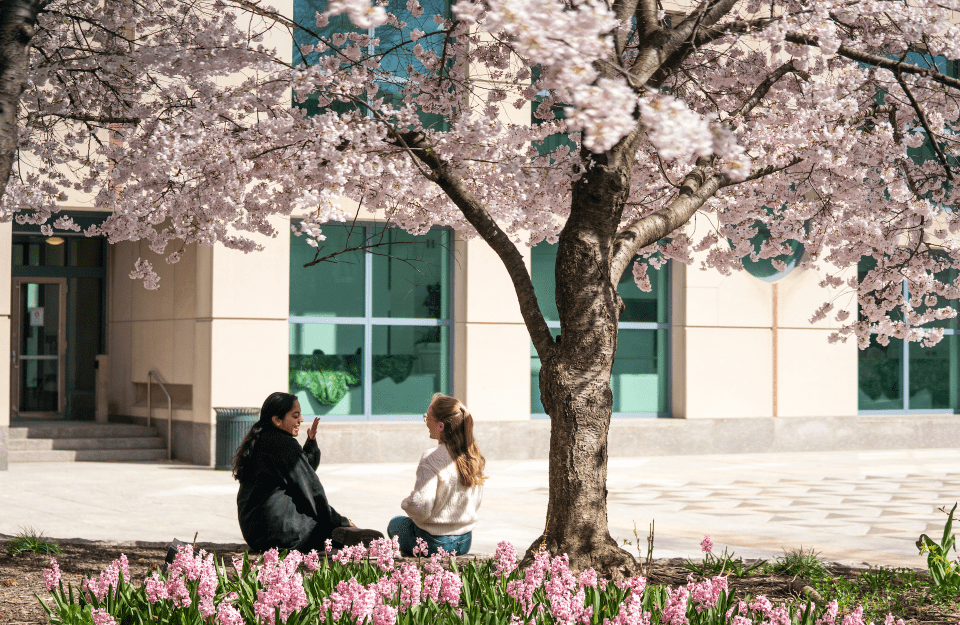
One of the hallmarks of the Annenberg School for Communication’s ethos is its embrace of interdisciplinary scholarship. Recognizing the multifaceted nature of Communication, the School regularly partners with other departments at Penn, other universities, and external organizations to expand its research and offer students a diverse array of learning opportunities.
Whether it’s a collaboration with another school at Penn, a community group, or another university, Annenberg’s pursuit of collaboration has accelerated in recent years and can be found in nearly all corners of the school.
Here are many of Annenberg’s collaborations that transcend disciplinary and institutional boundaries:
University Research Collaborations
Annenberg Center for Collaborative Communication (C3)
The Annenberg Center for Collaborative Communication is a first-of-its-kind joint center between USC Annenberg School for Communication and Journalism in Los Angeles and the Annenberg School at Penn, linked by Dean and C3 Director Sarah Banet-Weiser, who holds faculty appointments at both schools.
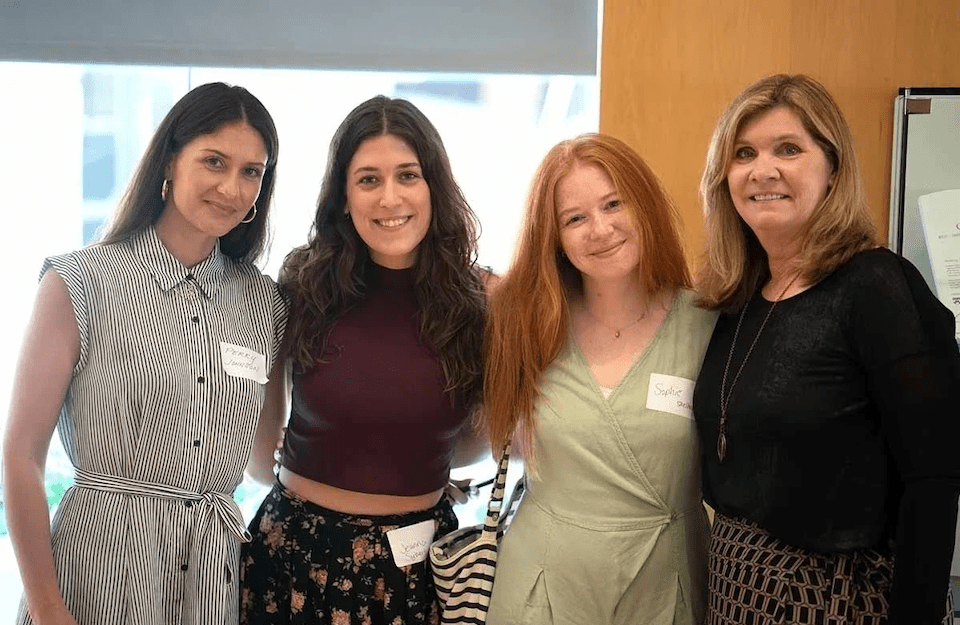
Since its launch in 2021, C3 has been offering doctoral student exchanges, a Distinguished Fellows program that provides research support for scholars from both schools, and a writing workshop that pairs Annenberg East and West doctoral students with mentors from the opposite school, as well as events, symposia, podcasts, and more.
Global Media Cultures Collective International Doctoral Institute
In 2024, the Center of Advanced Research in Global Communication (CARGC) collaborated with the University of Hyderabad and the University of Pennsylvania Center for the Advanced Study of India (CASI) to launch its inaugural Global Media Cultures Collective International Doctoral Institute, held March 4-8 in Delhi. Doctoral students from Annenberg and from various universities across India gathered for lectures, workshops, and cultural activities.
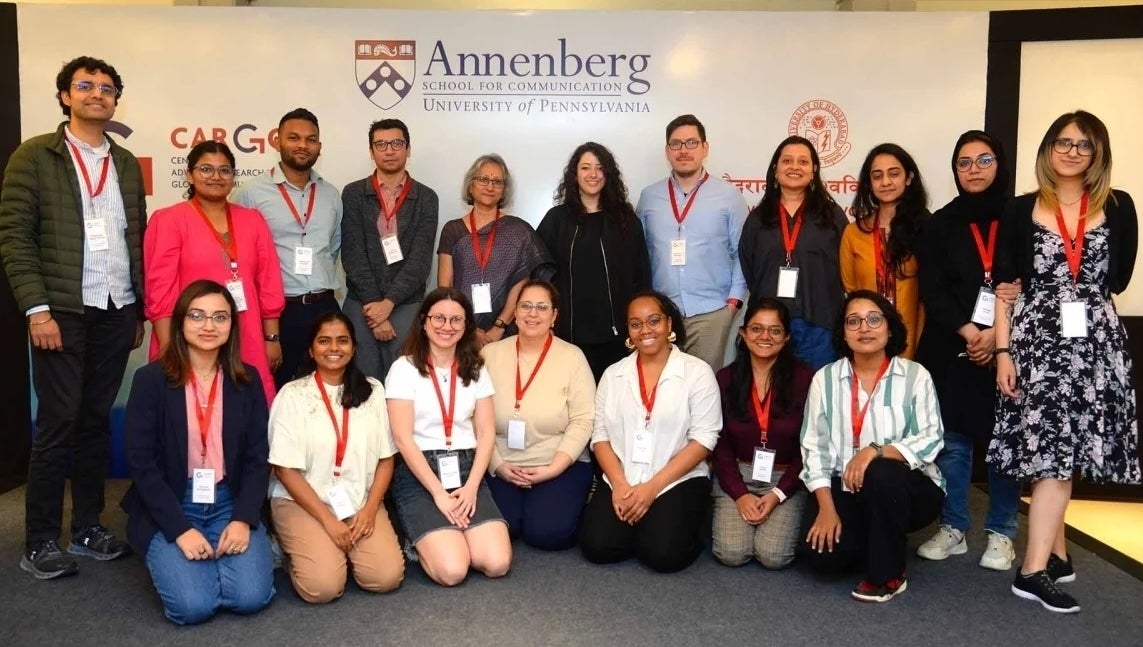
Launched with seed funding from Penn Global, the goal of the institute is to help develop the next generation of global Communication and Media scholars by building a collaborative, international, and cross-disciplinary network of scholars conducting comparative research on media technologies and cultures from non-Anglocentric perspectives.
Media, Inequality and Change Center (MIC)
The Media, Inequality & Change Center, a collaboration between the Annenberg School and Rutgers University’s School of Communication and Information, explores the intersections between media, democracy, technology, policy, and social justice.
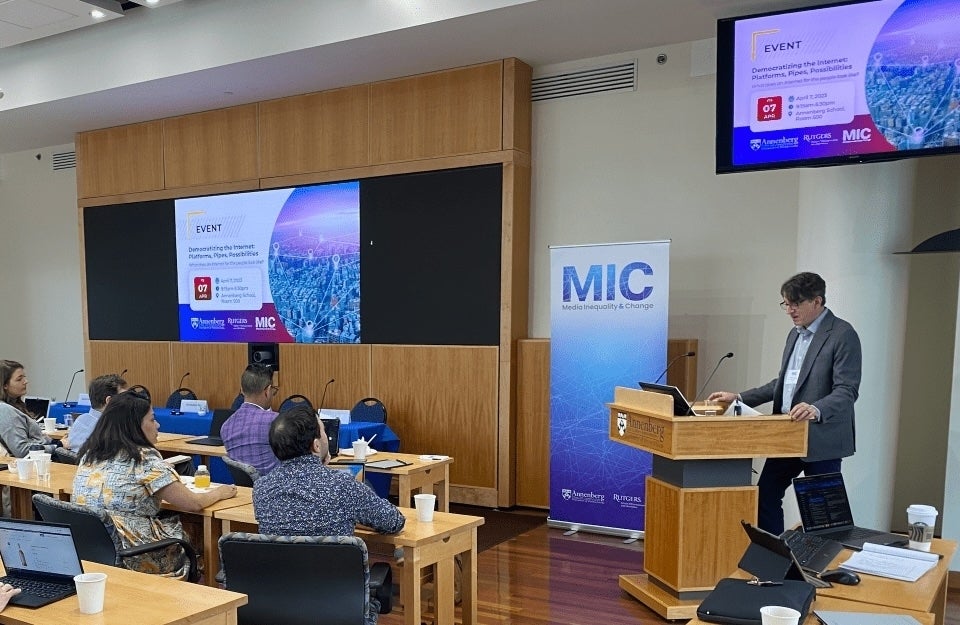
Launched in 2018 by Annenberg Professor Victor Pickard and Rutgers Professor Todd Wolfson, MIC collaborates with community leaders to help support activist initiatives and policy interventions while producing research. In 2020, Professor Sarah J. Jackson joined the center as a co-director, bringing her expertise in social movements and marginalized publics to the MIC’s core mission: addressing structural inequality in all its forms.
COMPASS
MIC manages the Consortium on Media Policy Studies (COMPASS) — a group of six schools with Communication doctoral programs.
Each year, COMPASS sponsors a select group of Communication Ph.D. students interested in media policy to spend a summer in Washington, D.C. and work at national and non-profit institutions. Each week, these Fellows come together to discuss their work and participate in a seminar on how Communication scholarship can intersect with policy.
For example, this summer, COMPASS Fellow and Annenberg doctoral student Anjali DasSarma is headed to D.C, to work for Free Press, in order to explore her interest in media reparations and policy.
Pennsylvania Broadband Research Institute
The Pennsylvania Broadband Research (PBR) Institute, is a collaboration between MIC and the Donald P. Bellisario College of Communications at the Pennsylvania State University. The Penn State faculty leaders include Annenberg alum Christopher Ali (Ph.D. ‘13), Pioneers Chair and Professor of Telecommunications.
Dedicated to expanding broadband access to underserved communities in Pennsylvania, the ultimate goal of the PBR Institute is to use research, advocacy, and community input to determine a way to establish fast, reliable, and affordable access to the internet to everyone in the state and then the nation.
Polarization Research Lab
The Polarization Research Lab is a collaboration among faculty at Dartmouth College, Stanford University, and the Annenberg School. Led by Professor Yphtach Lelkes at Penn, the Lab specializes in data collection about affective polarization — the degree to which partisans actively dislike the other party — and what can be done to heal those divides.
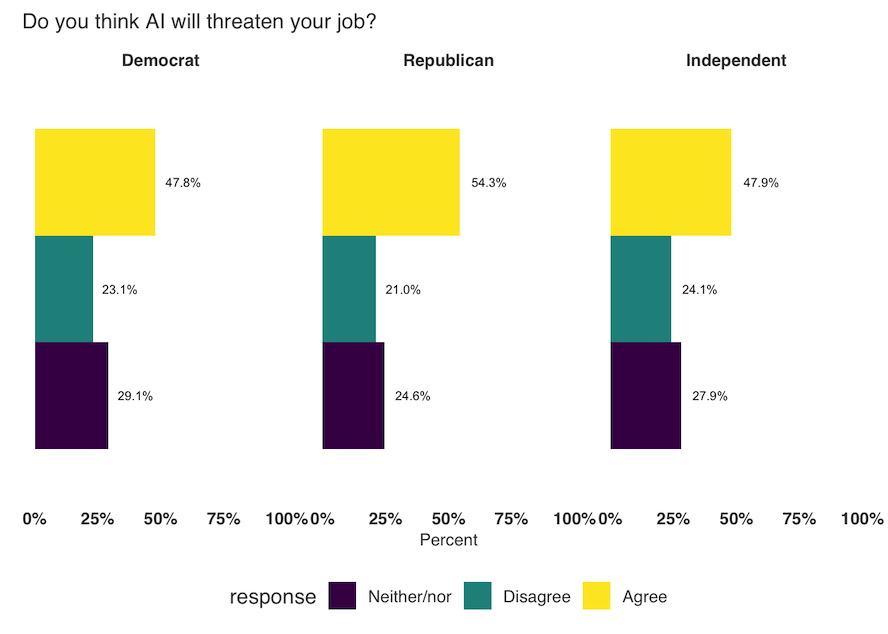
Among other research, the Lab conducts 1,000 survey interviews each week, monitoring how citizen attitudes change in response to real world events and identifying any anti-democratic trends. Answers are visualized on the Lab’s dashboard — America’s Political Pulse.
Collaborations Within Penn
Institute for the Study of Citizens and Politics (ISCAP)
The Institute for the Study of Citizens and Politics (ISCAP) is led by Professor Diana C. Mutz and jointly supported by Annenberg and Penn’s School of Arts and Sciences.
ISCAP’s research focuses on public opinion, political psychology, and political communication, using social scientific methods to better understand and to potentially improve the quality of citizens’ relationships with government as well as with each other.
Students affiliated with ISCAP work with faculty from Penn’s Department of Political Science and Department of Mathematics to use quantitative methods to foster nuanced interpretations of political discourse and media messaging and work with the center’s affiliates around the world.
Center for Digital Culture and Society (CDCS)
Founded in July 2019, the Center on Digital Culture and Society supports critical, interdisciplinary scholarship and dialogue on digital culture, technology, and society. Led by Guobin Yang, the Grace Lee Boggs Professor of Communication and Sociology at the University of Pennsylvania, the center, too, is jointly supported by Annenberg and the Department of Sociology.
CDCS aims to create collaborative spaces for discussion and debate among academics, citizens, and activists; develop critical approaches to the study of digital culture and technology; help train new generations of digital researchers at the University of Pennsylvania and beyond; build global networks of researchers; advocate for socially just design, production, and use of digital technologies; and explore and foster new visions of digital futures through scholarship and public communication.
Social Action Lab
The Social Action Lab is a group of experts and trainees in psychology, communication, and economics who seek to understand the fundamentals of social behavior and apply this knowledge to the solution of social and health problems.
The lab draws students and researchers from across the University, as its director, PIK Professor Dolores Albarracín holds appointments in four Penn schools — the Annenberg School for Communication, the School of Arts & Sciences, the School of Nursing, and the Wharton School.
Social Action Lab members also work closely with the Annenberg Public Policy Center, where Albarracín is the director of the Communication Science Division.
Computational Social Science Lab (CSS)
The Computational Social Science Lab, led by PIK Professor Duncan Watts, unites computer science, statistics, and social science to solve challenging real-world problems using digital data and platforms.The lab was created in March 2021 as a joint venture of Watts’ affiliated institutions: Annenberg, the School of Engineering and Applied Science, and the Wharton School.
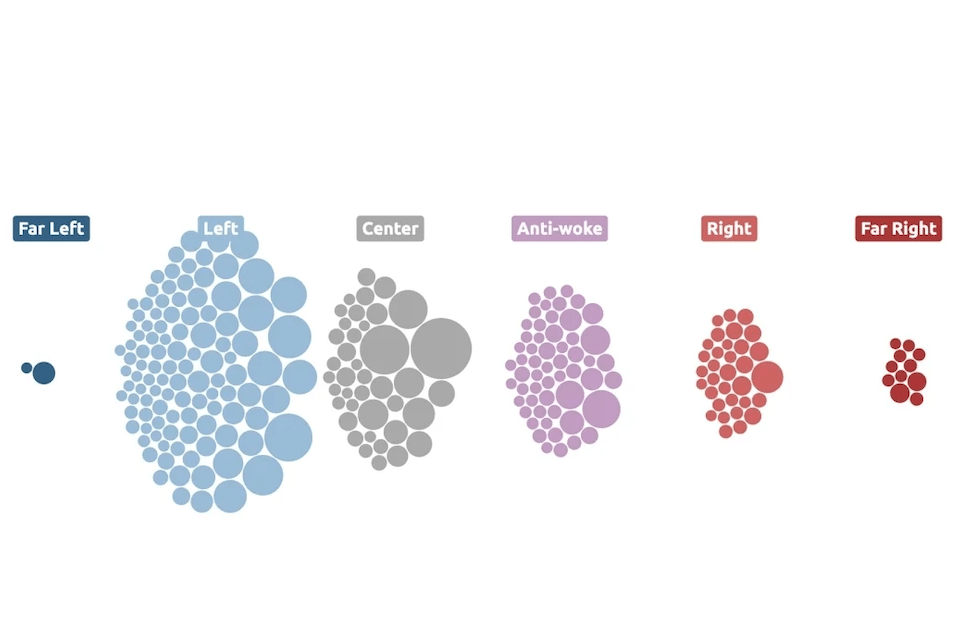
Students affiliated with CSS work across disciplines and use data to tackle real-world challenges head-on, from boosting team performance to detecting bias and misinformation in media to modeling the spread of COVID-19.
Other Collaborations
Lisbon Winter School
For four years, the Center for Media at Risk at Annenberg, led by Professor Barbie Zelizer, has collaborated with the Universidade Católica Portuguesa to hold the Lisbon Winter School for the Study of Communication — a week-long workshop that allows doctoral students and early career researchers to explore different topics with senior scholars in the field.
Topics explored have been “Media and Ambivalence,” “Media and Populism,” and “Media and Propaganda.”
Youth Participatory Action Research
Beyond preparing students for success in their scholarship, Annenberg is deeply committed to nurturing socially responsible citizens who actively engage with their community.
To this end, many Annenberg labs and centers collaborate with Penn’s Netter Center for Community Partnerships to involve Philadelphia high schoolers in their research.
One such lab is the Health Communication & Equity Lab, directed by Professor Andy Tan. Since his arrival at Penn, Tan has worked with the Netter Center to teach Academically Based Community Service (ABCS) courses, in which students and faculty work with West Philadelphia public schools to help solve community problems through academic research.
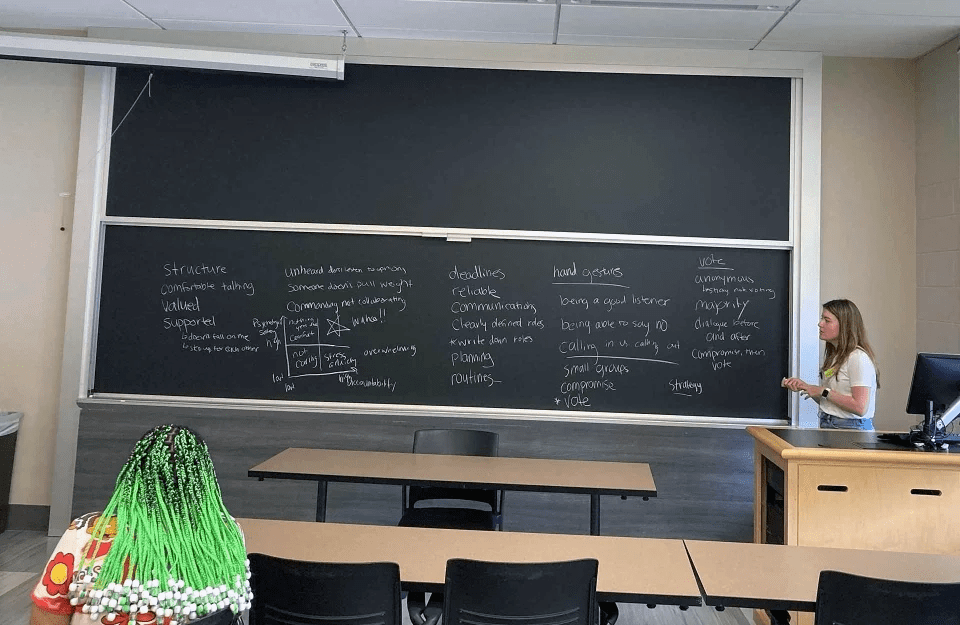
The lab’s approach — Youth Participatory Action Research — prioritizes community-based research, actively involving youth in shaping research questions, designing studies, and interpreting findings.
Over the past several years, Annenberg doctoral students and undergraduate Communication majors have worked with students at Sayre and West Philadelphia high schools to develop public health communication campaigns, design community health interventions, and more.



